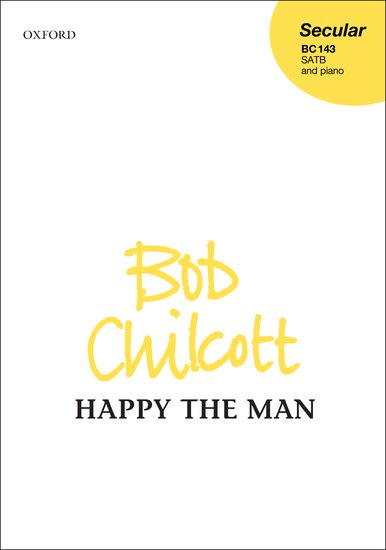Bob Chilcott is one of the most active choral composers and conductors in Britain today. His 2012 conducting schedule will take him to Poland, Denmark, Spain, Germany, China, Japan, USA, and Canada, as well as to the Royal Albert Hall for the premiere of The Angry Planet at the BBC Proms. He spoke to us about hearing his compositions for the very first time and the different qualities that international choirs bring to his music:
[audio:https://oupblog.wpenginepowered.com/wp-content/audio/Bob-Chilcott.mp3]“It’s interesting to hear a piece you’ve written for the first time because you hope that it’s going to sound exactly like you think it’s going to. There are times when, actually there are very few times I have to say, when I’m surprised by what I hear because I hopefully have a feel for what I’m going to hear.
“I remember a long time ago I met the composer Ron Goodwin when I was at school, he wrote 633 Squadron, and he always said he imagined when he wrote his orchestral scores, he imagined the London Symphony Orchestra playing them all the time. I think if I am honest, I normally have the sound of an English choir in my mind, the kind of choir that I know well, the kind of young, English, SATB choir. But of course you hear a lot of pieces done by different nationalities singing in English and that, for me, is very interesting.
“The piece Happy the Man I wrote for the Kyoto Echo Choir, a very fine Japanese choir and they were singing, of course, in the English language. They have a guy in the choir who is bilingual, who sings and speaks both Japanese and English very well and he taught them the English but of course they bring a different sound to the piece and I find that quite intriguing. It gives a different colour to the language and can surprise you in the way that it can make the piece sound slightly different. Equally, I recorded Happy the Man with the Wroclaw Philharmonic Choir, a very fine choir from Poland and they again brought a different colour to the piece. Of course they try and sing in perfect English but they’re always going to bring a different sound and I like that. I think it gives different colours and different feelings to the piece.
“If I’m thinking about writing a piece for a choir from another country, depending on which country it’s from one might think of slightly different texts or might use the choir in a different way. I’ve found particularly with choirs in the United States, they often have a fine homophonic sound which I find that I enjoy as something that is slightly different to the English sound which is much more polyphonic and linear. It might have something to do with the kind of buildings that we’ve been brought up in as singers. We sing in resonant buildings and we sing very linear music. A lot of other people don’t have that perspective on sound. Maybe it’s much more, as I say with the American sound, much more homophonic, much more voices singing words in unison.”
Bob Chilcott has been involved with choral music all his life, first as a Chorister and then a Choral Scholar at King’s College, Cambridge. Later, he sang and composed music for 12 years with the King’s Singers. His experiences with that group, his passionate commitment to young and amateur choirs, and his profound belief that music can unite people, have inspired him both to compose full-time and, through proactive workshopping, to promote choral music worldwide. He is the composer of Happy the Man, The shepherds sing, The Nine Gifts, and The Angry Planet among others.
Subscribe to the OUPblog via email or RSS.
Subscribe to only music articles on the OUPblog via email or RSS.
View more about this book on the ![]()
Oxford Sheet Music is distributed in the US by Peters Edition.
Podcast: Play in new window | Download
Subscribe: RSS



Bob, Thanks for your note about other perspective than linearly. I enjoy hearing others perform my music, especially in sacred settings. When it’s done really well, I have to admit I wish I was the one directing in that moment. But listening is sweet.